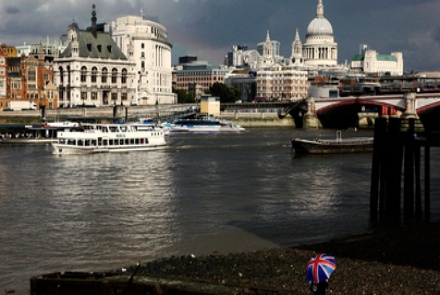Tightened the nut: about a visa that Abramovich could not get.
If before the incident with Roman Abramovich, only specialists and a very narrow circle of wealthy citizens who were interested in investment immigration programs knew about the existence of Tier 1, now this information has become “public knowledge”.
The Tier 1 investor visa was the first to be spotlighted in May 2018, when The Bell and other editions published numerous articles one after another about Roman Abramovich and his “problems with visa extension” to the UK.
Further events developed with kaleidoscopic speed. A few days later, The Guardian and The Telegraph reported that before extending the British visa, the British government would require the businessman to explain the source of origin of his wealth.
It is no secret that the new rules for issuing investor visas adopted in 2015 require clarification of the origin of money invested in the British economy. Before the introduction of the new rules, in 2008-2015, the Russians received 700 investor visas. Abramovich is one of them. After the approval of the new rules, the number of satisfied applications (in relation to the total number of foreigners) fell by 84%.
But instead of the expected clarifications, Roman Abramovich withdrew the application for a British visa and applied for Israeli citizenship, which was approved as soon as possible.
The billionaire invested heavily in the UK: only for the purchase of the Chelsea football club - £ 60 million; an even more significant amount for 15 years went to maintain the club (according to some reports, £ 800 million was spent on player transfers, more than £ 2.4 billion payroll).
Acquiring Chelsea, Abramovich hoped that he had bought a position in British society. It has been perceived, but alas, until a certain point in time! The British authorities have shown that they reserve the right to make the final choice of candidates for a visa, and it is very difficult to challenge this right, even having serious arguments in store in the form of an investment amount exceeding £ 3 billion.
The response of the owner of Chelsea was not long in coming. The football club made it clear that the reconstruction of the stadium, worth £ 1 billion, is being frozen. The decision is caused by an “unfavorable investment climate”. Following this, rumors spread about the possible sale of Chelsea.
The story of Abramovich is a clear example of the fact that the conflict of power and representatives of large business is unlikely to benefit both sides.
Historically, the UK is one of the most attractive destinations for investment and immigration of wealthy individuals. In March 2018, the annual Wealth Report 2018, published by Knight Frank, was published. According to the study, the UK is a leader in real estate investment for ultra-wealthy people whose wealth exceeds $ 30 million.
At the same time, according to the National Statistical Service of Great Britain, a record number of Tier 1 visa applications were registered in the first three months of 2017, which is the highest rate since 2014.
According to information published by the Organization for Economic Co-operation and Development (OECD), starting in 2006, the UK had the highest level of foreign direct investment in 2016. The inflow of foreign direct investment in the UK reached £ 201 billion in 2016 compared to £ 33 billion in 2015.
This indicator is extremely important - the country is directly interested in the influx of finances from abroad. This is the creation of additional jobs, and increased internal competition, and economic growth, and increased productivity ... As a result, a general improvement in living standards.
But if, before Brexit, Great Britain was considered among non-British investors as a “point of entry” to the single European market ( where the basis of the attractiveness was being a stable economy, which “compensated” for not the most favorable conditions for obtaining an investor’s visa), now, on the eve (and especially after) of Brexit, Britain must by any means maintain its place in the prestigious class of countries attractive to wealthy investors. But the story of Abramovich quickly sets in a different mood. Who said that no other visa seeker could be at the place of a Russian? How unique is the UK in terms of investment immigration?
To complete the picture, let us recall what basic conditions a candidate for an investor visa must meet: be prepared to invest £ 2 million or more in UK government bonds, equity or borrowed capital of active trading companies registered in the UK; be a citizen of a country outside the European Economic Area and Switzerland, aged 18 years or older; have evidence that the money belongs to applicant personally or to his spouse, partner, in particular, possibly same-sex; have a bank account in the UK.
An application for a visa can be submitted to the authorities no earlier than three months before the trip. The decision to issue a visa must be made within three weeks. Having become the holder of an investor visa, the applicant can come to the UK for up to three years and four months. Extension of the aforementioned visa is possible for two years.
It is permissible for a visa applicant to apply for a permanent residence permit after two years if the amount of invested funds is £ 10 million, and apply for a permanent residence permit after three years if the amount of invested funds is £ 5 million.
An application for a visa may be rejected if British officials consider that the applicant: does not control his money independently; earned it illegally; disclosed the source of funds, but the information received "suggests that the visa will not serve the public good."
The money of the applicant must be stored in one or several banks in the UK, but at the time of application can be placed outside it. At the same time, when submitting documents, a certificate of no criminal record should be provided from all countries in which the applicant spent 12 months or more over the past 10 years.
Family members of investors are also entitled to obtain a residence permit and permanent residence. But to obtain permanent residence starting January 11, 2018, family members should not be outside the UK for more than six months a year. In other words, they must meet the same requirements as the main applicant.
The availability of a permanent residence permit for 12 months provides the applicant with the right to apply for naturalization. It is important to keep in mind that a permanent residence permit (under certain circumstances) may be revoked. In particular, long periods of stay (more than two years) outside the country should be avoided. The same fate awaits the owners of permanent residence who have committed a crime, in case they mislead the immigration authorities when submitting documents, or for reasons of national security.
What is needed to naturalize a wealthy investor? It must be demonstrated: that the period of residence in the UK is at least five years before the date of application for a permanent residence permit; that the duration of your stay outside the UK has been no more than 90 days in the last 12 months or no more than 450 days in the last five years; provide evidence of residence in the UK in the status of a naturalized citizen after obtaining citizenship.
From the foregoing it clearly follows that Roman Abramovich has long been able to obtain at least a permit for permanent residence. However, he chose not to become a tax resident in Britain.
Abramovich was one of the representatives of the list of celebrities who do not have domicile status in the UK (non-dom status in the UK). This status allows you to restrict the payment of tax on income arising in the UK, and on income imported (remitted) in the UK. As a result, if a taxpayer withholds foreign income abroad, he will not pay UK tax on them.
The question of toughening the non-dom tax regime was raised a few years ago. Experts noted that “the prevailing taxation for wealthy people simply became a game. The willingness of jurisdictions such as the United Kingdom to provide opaque, low, or tax-free conditions for the international elite is an insult to the public. ”
But emotions, emotions, but how else to keep attractive for foreign investors in the near future? An increase in the tax burden is not a solution to this problem.
So, the events of recent weeks have once again outlined the bottlenecks of investment immigration to the UK. Formally, Roman Abramovich did not receive a refusal to extend the visa, but without waiting for a decision, he left, slamming the door. Whether this option of interaction between the authorities and investors will become an ordinary event, time will tell.
The UK immigration authorities have the right to deprive the status of residence permit and permanent residence, if it later turns out that the applicant misled them when applying for a visa or when renewing it. How often and how are immigration authorities ready to use this right? And what evidence can be taken into account?
And finally, how will the story that we are witnesses affect the country's overall investment climate? Will go unnoticed? We should not forget that not only investors are interested in the UK, but the country is equally interested in investors.
A spokesman for the Israeli government confirmed: "Roman Abramovich arrived at the Israeli embassy in Moscow, like any ordinary visitor." He submitted a request for an immigration permit, his documents were checked for compliance with the law, the request was in fact recognized as eligible.
According to The Sun, a source close to Roman Abramovich concluded: the application for a British investor visa has been withdrawn. Although formally Roman Abramovich has not yet disclosed the sources of the origin of his wealth, and the corresponding reaction of the British authorities is unknown, and therefore, he has not yet lost hope of being in the UK on an investor visa, the topical question arises on the agenda: how will capital be recognized as “illegitimate” UK authorities?
Thus, this situation confronted both Tier 1 owners and potential applicants with the fact: if necessary, the immigration authorities are ready to check both new and old candidates with a “special interest” with no indulgence and without taking into account the size of investments already made. A very serious circumstance, which is hardly worth neglecting.






